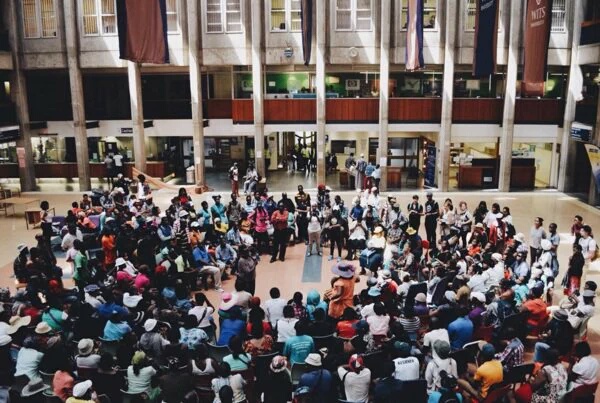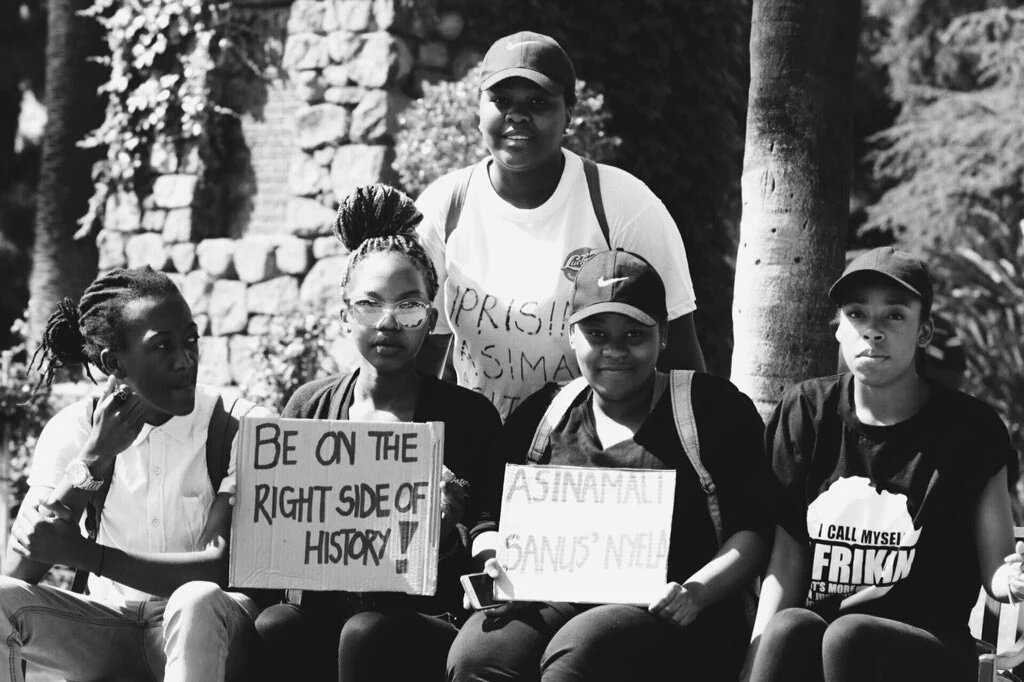During the years of the struggle, those individuals who were informants for the apartheid government of South Africa were labelled as impimpi or sell-outs. If they were found out, they were often beaten and necklaced.
I thought about this as I sat in the Senate House of the University of the Witwatersrand (Wits) and listened to student after student come up to the makeshift podium and brand me and several others like me a ‘sell-out’. I, the General Secretary of the Student Forum, the very structure whose sole purpose was to serve the entire student body, the very structure that held the infamous student representative council (SRC) accountable for their every action, was being branded a sell-out.
Only a week before, I had marched side-by-side with thousands of students to the Union Buildings and opposed the 10.5 per cent fee increase proposed by university management across the country. I too had opposed the outsourcing of general workers at universities. Now, there was a great divide within the student community between the revolutionaries and the sell-outs. The former were the students who believed that we should all protest for free education as well as continue with the fight to end the outsourcing of workers. They argued that they had enough leverage to hold the government at ransom.
It was one thing to be educated for free but of what benefit was it to any of us if there were no lecturers to teach or conduct research, no resources or facilities and no maintenance of infrastructure?
I and several other sell-outs, colleagues of mine in the Student Forum, other student leaders and students in general, felt that although free education could be achieved in our lifetime, it would not come in the few weeks that the revolutionaries planned to boycott the university calendar and examinations. Free education would not be realised then because we were appealing to a government who insisted it was not possible despite rumours of a concealed report that proposed otherwise.
We argued that the dismal standard of free education already available at state-owned primary and secondary level schools, should direct us to exercise caution. It was one thing to be educated for free but of what benefit was it to any of us if there were no lecturers to teach or conduct research, no resources or facilities and no maintenance of infrastructure? An indefinite protest in an attempt to advance the stalemate with government would only compromise us in the long term. After all, we were the ones with degrees to obtain and not them.
There were vehement shouts saying we’d betrayed the student body, we’d betrayed the black child who was central to this cause.
There were vehement shouts saying we’d betrayed the student body, we’d betrayed the black child who was central to this cause. But we continued standing our ground. We also felt that although we had lobbied with workers so as to have strength in numbers, the fight to end outsourcing, however noble in its intentions, was not one that students could afford to continue championing. We ardently believed that it was time for the trade unions specifically to step in and attend to the demands of their own workers.
The irony was that we as the sell-outs were not the ones sowing seeds of division or opposing the movement. What we believed and even feared was that – although the movement was very close to our heart and admittedly emotionally charged – it would continue wholly based on roused emotions. We had one conviction: we needed to employ more rigour and less emotion. We needed and even demanded a space that was conducive to rigorous discussion; discussion that encouraged questioning, evoked critical and analytical thinking, pragmatism and chiefly, a high level of honesty.
Fast forward to 2016 and #FeesMustFall is not trending as it did previously.
And it was this way of thinking that perhaps opened the eyes of many. Uncertainty about the progression of the movement under the leadership of the SRC grew. Were there underlying agendas or political undertones prevalent? Why could we not look at a long-term effort instead?
It was at this moment that the sell-outs prevailed.
Fast forward to 2016 and #FeesMustFall is not trending as it did previously. SRCs have reverted to fund-raising campaigns for financially-challenged students and government is still complacent about the plight of many students at universities across the country. A few disgruntled radicals have hijacked the movement and under its guise are burning down and vandalising parts of universities in an effort to relay a message that confounds even the rest of us who were a part of the movement.
I was constantly told to find myself on the right side of history; the right side of the revolution especially as a student leader. It depends how one views it I suppose. What was the right side? All I know for certain is that as a sell-out I did better for my student body than I ever could have as a revolutionary.


